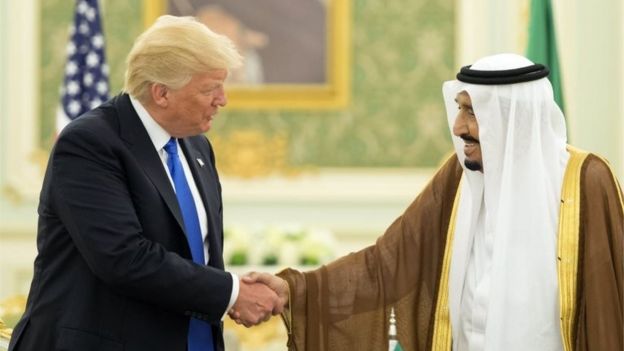Israel and Saudi Arabia: What’s shaping the covert ’alliance’
Why Saudi Arabia and Iran are bitter rivals
For the moment Iran and its allies and proxies, like the Shia militia group Hezbollah in Lebanon, appear to be winning. So a strengthening of the relationship between Israel and Saudi Arabia makes sense to both countries.
Both insist that Iran should never be allowed to become a nuclear weapons state. Both are uneasy about aspects of the international agreement limiting Iran's nuclear activities. And both see an increasingly well-trained and well-equipped Hezbollah in Lebanon as a force for instability in the region.
Trump factor
But there is something more going on here as well. It is not just the problem of a rising Iran. Other crucial factors need to be considered too, notably the impact of the new Trump administration in the United States and the broader trajectory of the Middle East in the wake of the Arab Spring and the horrific war in Syria.
At first sight neither Saudi Arabia nor Israel should have any complaints about the new administration in Washington.
Mr Trump in visits to both countries seems to have embraced their strategic outlook and he too is deeply sceptical about the nuclear agreement with Iran.

He is lavishing Washington's allies in the Gulf with new arms sales of ever more sophisticated weaponry.
But empathy is one thing, practical strategy quite another. However welcome many of the president's words may be in Israel and Saudi Arabia, both governments know that US policy seems adrift in the region.
The US and its allies have been out-gunned and out-played in Syria by Russia and Iran.
For all the talk the US has not yet put forward a credible and coherent policy for containing Iranian influence.
No wonder the Saudi Crown Prince has decided that his country must be more active in its own interests. There is a sense in which both Israel and Saudi Arabia are adjusting to a waning of US influence in the region and the return of old actors like Russia.
Israeli fears
And there is something more fundamental too. Prince Salman is embarking on a dual strategy of trying to confront Iranian influence while also re-shaping and modernising the kingdom.
The latter is in many ways a response to the upheavals of the Arab Spring and the threat of Islamist violence.
Prince Salman appears to have determined that the region must change if it is to have any future. And change begins at home. Reform may be as important as containing Iran.
Media captionFive things about Saudi Arabia's Crown Prince Mohammed bin Salman
A number of private discussions lead me to believe that this is something that Israel buys into too. They recognise that Prince Salman's activism comes with many risks.
But they have watched with horror from the sidelines of the war in Syria, not least at what some Israelis see as the "normalisation" of the use of chemical weapons; this prompting a very limited response from the wider international community with Moscow actually lending its protection at the UN Security Council to its Syrian ally.
...[ Continue to next page ]
tag: blog , information
Share This Post





